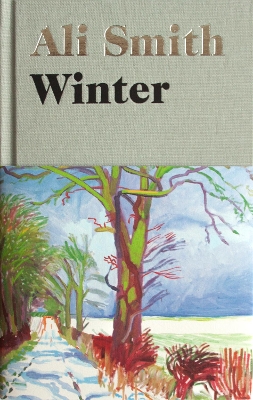Reviewed by brokentune on
And romance was dead. Chivalry was dead. Poetry, the novel, painting, they were all dead, and art was dead. Theatre and cinema were both dead. Literature was dead. The book was dead. Modernism, postmodernism, realism and surrealism were all dead. Jazz was dead, pop music, disco, rap, classical music, dead. Culture was dead. Decency, society, family values were dead. The past was dead. History was dead. The welfare state was dead. Politics was dead. Democracy was dead.
Communism, fascism, neoliberalism, capitalism, all dead, and marxism, dead, feminism, also dead. Political correctness, dead. Racism was dead. Religion was dead. Thought was dead. Hope was dead. Truth and fiction were both dead. The media was dead. The internet was dead. Twitter, instagram, facebook, google, dead.
Love was dead.
Death was dead.
A great many things were dead. Some, though, weren’t, or weren’t dead yet.
Life wasn’t yet dead. Revolution wasn’t dead. Racial equality wasn’t dead. Hatred wasn’t dead.
But the computer? Dead. TV? Dead. Radio? Dead. Mobiles were dead. Batteries were dead. Marriages were dead, sex lives were dead, conversation was dead. Leaves were dead. Flowers were dead, dead in their water.
Imagine being haunted by the ghosts of all these dead things. Imagine being haunted by the ghost of a flower. No, imagine being haunted (if there were such a thing as being haunted, rather than just neurosis or psychosis) by the ghost (if there were such a thing as ghosts, rather than just imagination) of a flower. Ghosts themselves weren’t dead, not exactly.
What a beginning, eh? Much like Autumn, Winter also starts with a version of a Dickens quote. Unlike Autumn, however, Winter seems to follow Dickens' Christmas Carol in other aspects, too.
We have a Christmas setting, an apparition of a head that haunts Sophie, one of our characters, and we have scenes switching between the past, present and future. And then of course, we have Lux, also a main character but she acts like one of the Christmas spirits - a catalyst, if you like, that presents all of our main characters with questions that make them reflect on themselves and how they interact with the world around them.
Art(hur) is a young man working for a tech firm, hunting down copyright infringements on the internet. He's also a blogger and has a Twitter account with about 6000 followers, but the problem is that nothing he writes about is anything that he really cares about. In short, Art is a representation of the fake.
When Art epically falls out with his girlfriend Charlotte before the holidays, he cannot face going home to see his mother for Christmas without the much advertised Charlotte and ends up hiring a girl he meets at a bus stop to pretend to be Charlotte for a few days.
What could possibly go wrong?
Well, ... There is a Christmas family argument - several actually - which is not helped by Art's aunt Iris also visiting, and she had not been on speaking terms with Art's mother for several years. In fact, it seems that the sisters could not be further apart in any ways imaginable, and both of them are suffering for it.
The family get-together is set against the background of Smith's chronicle of 2 or 3 years, and is very much picking up on current affairs and topics and news items that have hit the headlines over that time.
I say that Smith created a chronicle because that is the impression I got when reading again about refugees in the Mediterranean, fake news, propaganda, politicians, technology, and narcissism:
Me, me, me, Iris says. It’s all your selfish generation can ever talk about. I’m going to tweet about it in a long scroll unrolling itself out of my mouth like in an illustration of a dandy by an eighteenth century satirist. No, I mean like a president. I’ll do it presidentially. I mean a fake president, I’ll do it fake presidentially.
Winter is also about hibernation, the forgetting of the who, what, why. The forgetting of history. The questions of whether we need to know where we came from to know who we are and what defines us. Is it background or is it aspiration? Does it matter?
And when you’ve done telling them that, she said, tell them what it’s like to come back here, when you’re a citizen of the world who’s been working with all the other citizens of the world, to be told you’re a citizen of nowhere, to hear that the world’s been equated with nowhere by a British Prime Minister.
Winter is definitely a story of division, and Smith underlines all of this with factual events and quotes, which makes for depressing, infuriating reading.
However, Smith doesn't rant but weaves it all together in the story of her characters, and even attempts to show a way for Art's family to work on bridging that division - not in a happy ever after kind of way as Dickens original story, but in a way that at least creates a platform for communication.
It isn’t a good enough answer, that one group of people can be in charge of the destinies of another group of people and choose whether to exclude them or include them. Human beings have to be more ingenious than this, and more generous. We’ve got to come up with a better answer.
Reading updates
- Started reading
- 2 January, 2018: Finished reading
- 2 January, 2018: Reviewed
